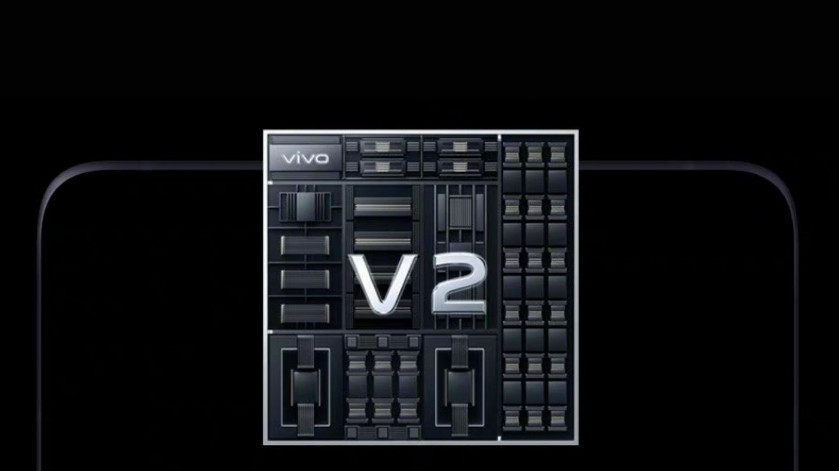
vivo today held the “Dual-Core X Imaging Technology Communication Conference” in China. The event, which was focused on pictures and performance, revealed new technologies, such as the in-depth collaboration between vivo and MediaTek and vivo’s new generation of self-developed chips. It also showcased Vivo’s newest achievements in independent research and development and open cooperation.
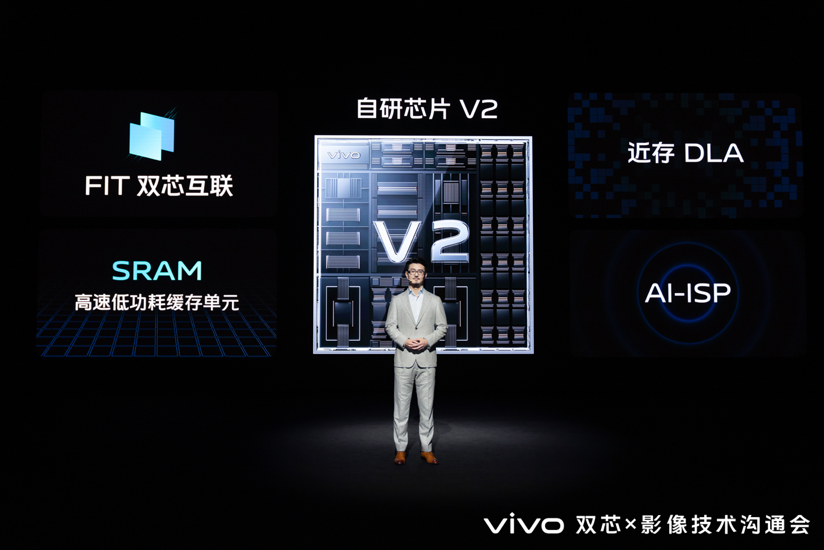
Vivo’s self-developed chip V2
The V2 chip, which was made by the company itself, is more compatible and has more features. It also has more on-chip memory, AI computing, and image processing. The last two generations of vivo’s self-developed imaging chips are V1 and V1+.
The proposed FIT dual-core connectivity technology provides a new high-speed communication method between V2 and Dimensity 9200.
Two chips with distinct architectures and instruction sets can accomplish dual-core interconnection synchronization in 1/100 seconds, enabling optimal data and computing power coordination.
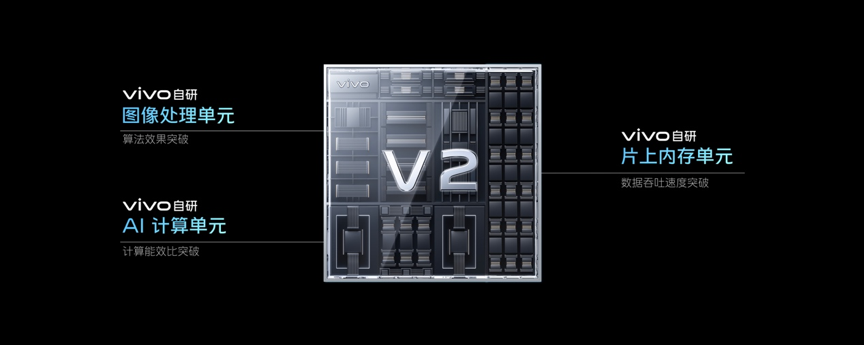
Because it has a DLA-Vivo AI deep learning accelerator module and a large-capacity dedicated on-chip SRAM cache unit, the self-developed chip V2 has unmatched computing power capacity, computing power density, and data density.
SRAM data throughput can reduce theoretical maximum power consumption by 99.2% and the energy efficiency ratio by 200% when compared to the DDR external memory design commonly used by NPUs.
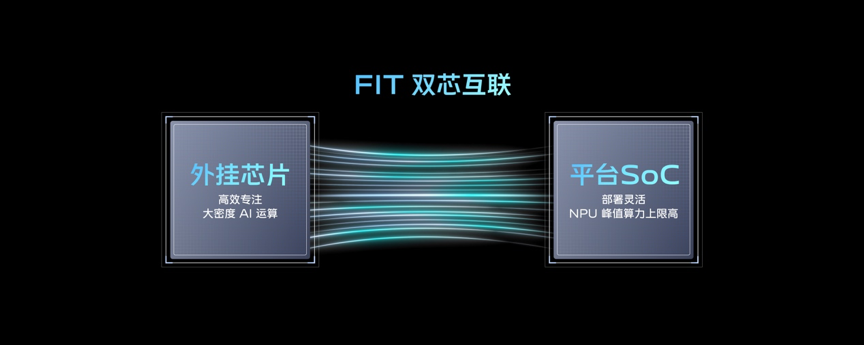
The AI-ISP architecture of the self-developed chip V2 is enabled by the design of FIT dual-core interconnection and near-memory DLA, which complements the ISP algorithm and computing power with the platform chip NPU to provide the best image processing effect as well as energy efficiency ratio.
Ultra-clear image quality engine
The Ultra-clear image quality engine with optical super-resolution algorithm at its core can restore 35% of focal length above five times the clarity information; Ultra Zoom EIS combines IMU, OIS, and EIS for high-magnification zooming. It reduces jitter and stabilises the preview image. Even when holding the camera, the lens may be shifted steadily, boosting Vivo’s telephoto power.
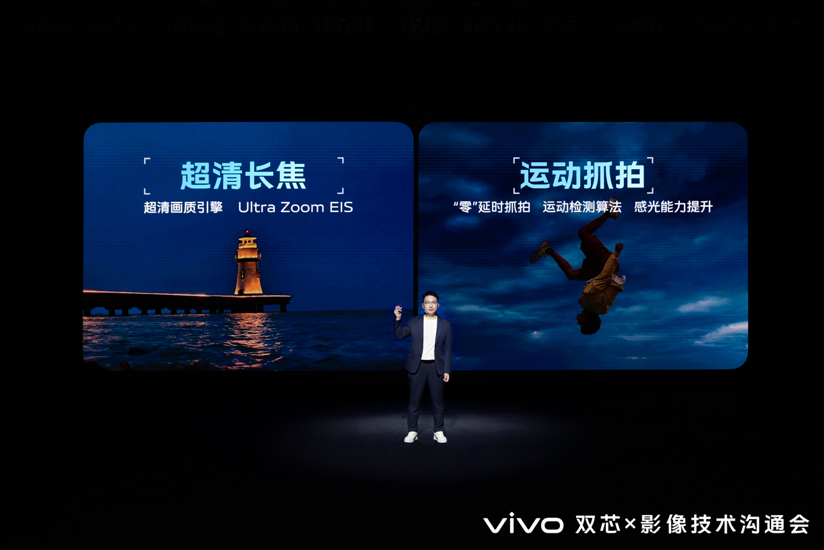
Zero-latency
Vivo has “zero-latency” snapshots and motion detection techniques. By enhancing the picture processing, the sensor starting speed and shutter delay time are enhanced to professional levels. Quickly creating a video increases “vivo” mobile pictures’ capacity to capture moving things and helps users capture more fleeting moments.
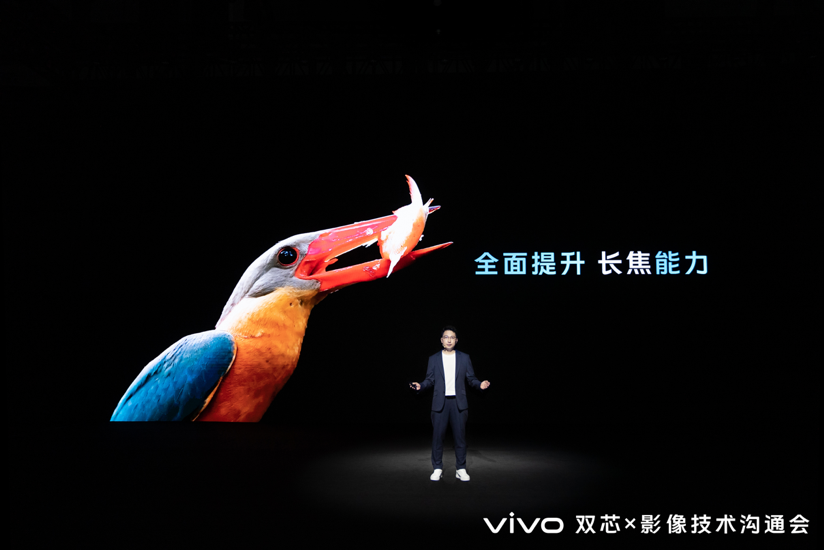
RawEnhance 2.0
vivo implements the dark-light capture capability through algorithm overlay and full-link optimization of photography, which improves the sensor’s sensitivity in dark-light scenarios; multi-frame fusion technology; and self-developed RawEnhance 2.0. The system superimposes moving images and eliminates smearing, allowing users to record high-quality dynamic photos in low light.
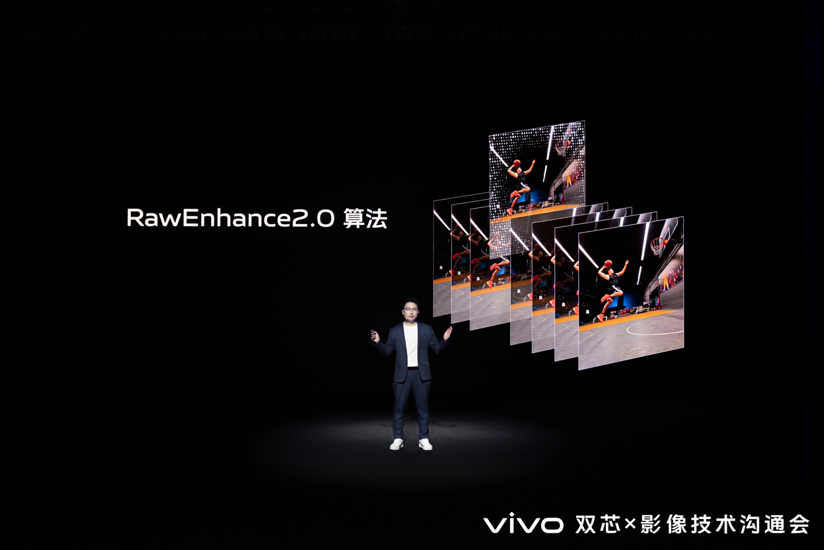
Research and development with MediaTek Dimensity 9200 flagship platform
Vivo joined the Dimensity 9200 flagship platform early on in cooperation with MediaTek. Twenty months of close collaboration led to the creation of MCQ multi-cycle queues, Honor of Kings adaptive image quality mode, chip eye protection, APU framework integration, and AI airport mode.
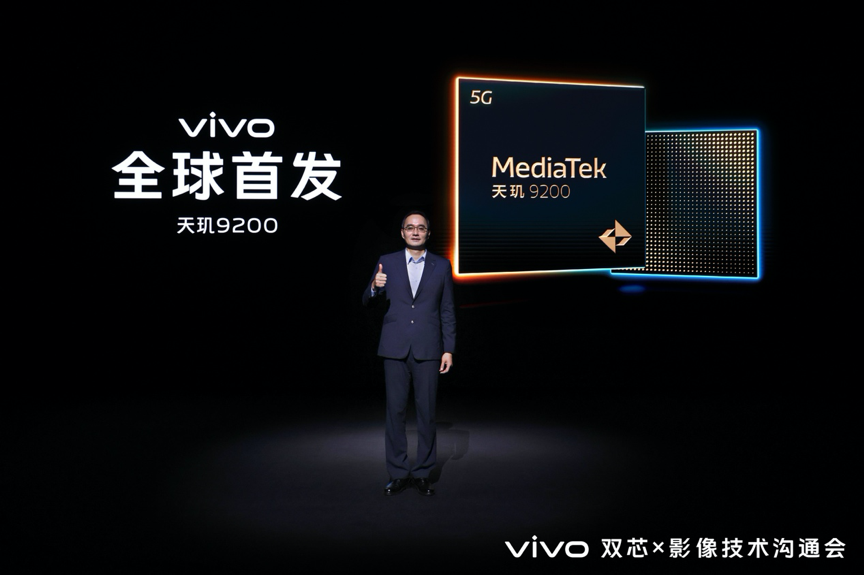
- MCQ multi-loop queue is a new CPU processing engine. It supports up to 8 channels of CPU-to-UFS data transmission, making programme switching and background download wake-up faster and smoother.
- Vivo, MediaTek, and Honor of Kings developed an adaptive image quality mode based on MAGT games’ adaptive loop. After turning on the adaptive function and running Honor of Kings 120+ extreme for 1 hour at 26 °C, the game frame rate is near full frame and the mean square error is 0.92, the industry’s best.
- The chip eye protection technology monitors the proportion of blue light in the screen in real time, decreases blue light in real time using new algorithms, and hardens it into IP, reducing high-energy visible blue light to less than 5% and colour shift by 12%. Depending on the monitoring results, the screen’s colour effect is constantly modified to eliminate blue light and prevent colour casts.
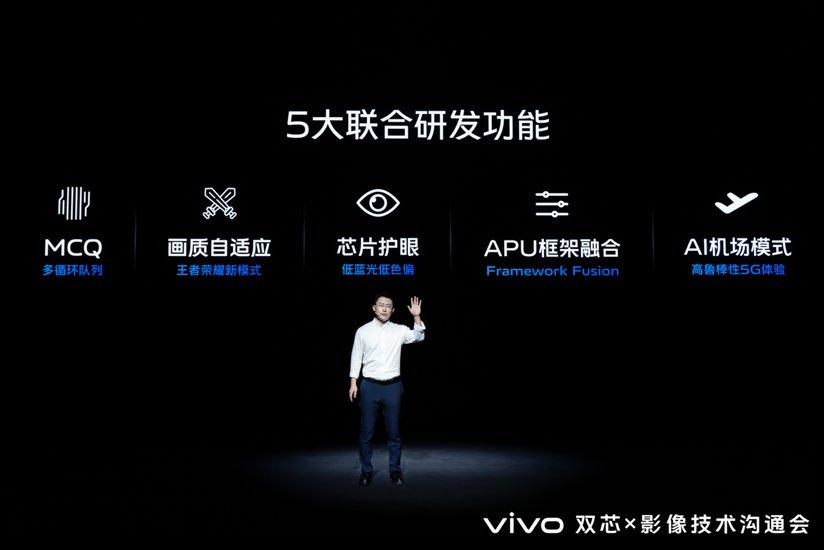
- APU Framework Fusion is Vivo’s sixth-generation APU based on Dimensity 9200. MediaTek’s overall capabilities are encapsulated in its VCAP heterogeneous computing acceleration platform. Deep optimization from the platform’s bottom layer to its framework layer allows the algorithm to be coordinated among numerous processors, improving energy efficiency and launching camera-generated ultra-clear documents and live texts.
- AI airport mode saves 30% of the user’s energy during flight; after flight mode is turned off, the network connection is restored in 1.52 seconds, speeding up recovery.
System kernel-level joint tuning
After Vivo and MediaTek worked together on a study, the Dimensity 9200’s performance once again beat the limit, and the AnTuTu Lab’s running score went over 1.28 million.
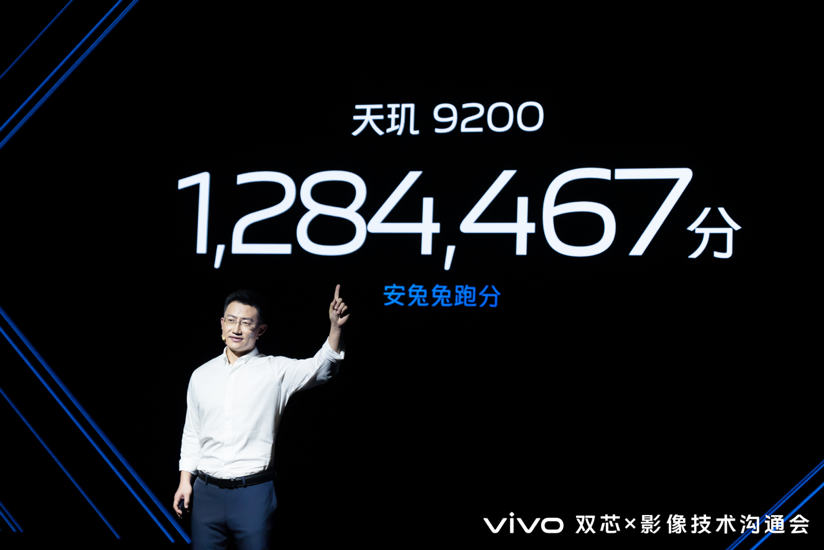
Vivo brings black technologies like game super-scoring to the game scene and optimizes the game experience in multiple links and all directions via the rapid start engine and network acceleration engine. It is the first time in the video scene that advanced technology with low power consumption has been achieved.
The cyclic parallax network reduces energy use by 15%. Dimensity 9200 uses 25% less power than Dimensity 9000 in 4K 60-frame extreme video scenes.
We can expect the V2 chip in the X90 series, and the X90 is expected to be powered by Dimensity 9200 SoC.
Speaking at the event, Huang Tao, Vice President of vivo Products, said:
Technology needs to be used to talk about products, self-developed chips are the confidence of vivo; technology self-development is a development path with deep barriers and long-term accumulation, vivo has always insisted on planting Because, not only do I hope to be able to do better than others, go more practical and long-term than others, but also hope that the market and consumers can feel the beautiful connection with the world through each generation of vivo’s flagship products.
